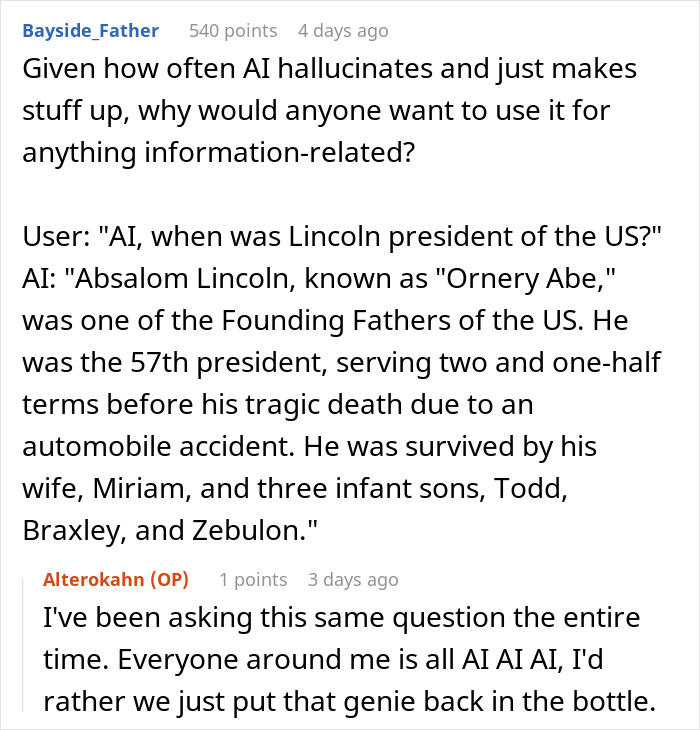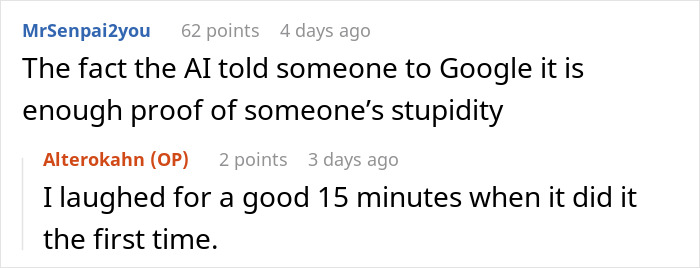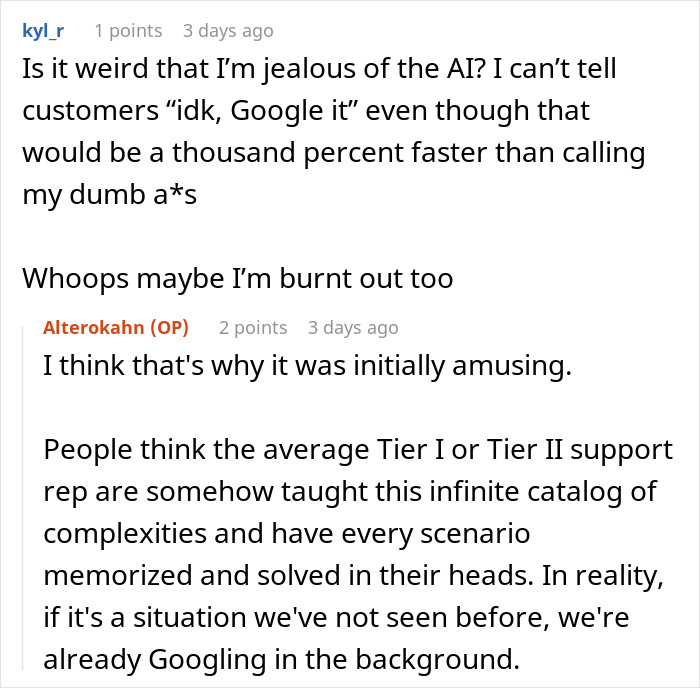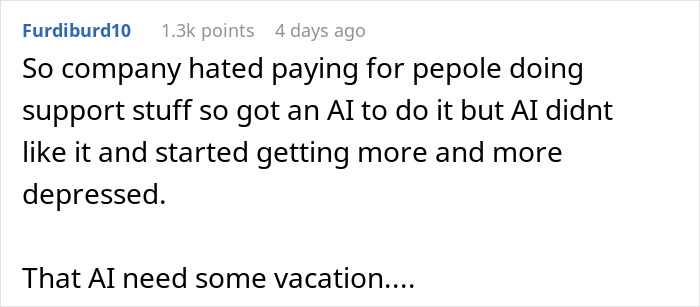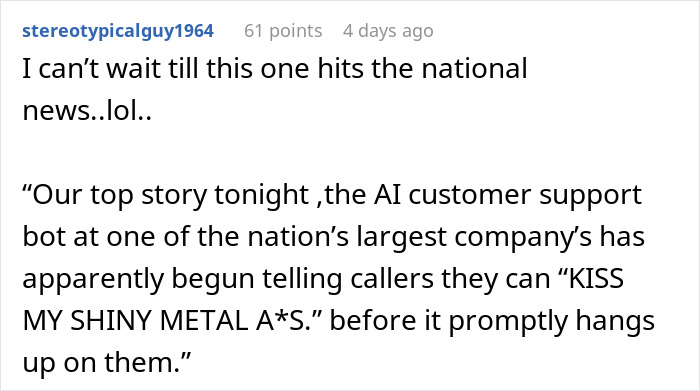Lately, we’ve been hearing how AI is going to take over the world. Scientists are trying to create various models that could be implemented in many areas of life. And their effort isn’t fruitless. Artificial intelligence is already implemented in quite a lot of places. For instance, in the workplace, AI models are “hired” to do certain jobs, like answering questions for employees. Unfortunately, it doesn’t always work the way it’s coded, just like in today’s story.
More info: Reddit
Some say that one day, artificial intelligence might take over the world. But some of the current AI models prove that day is not today
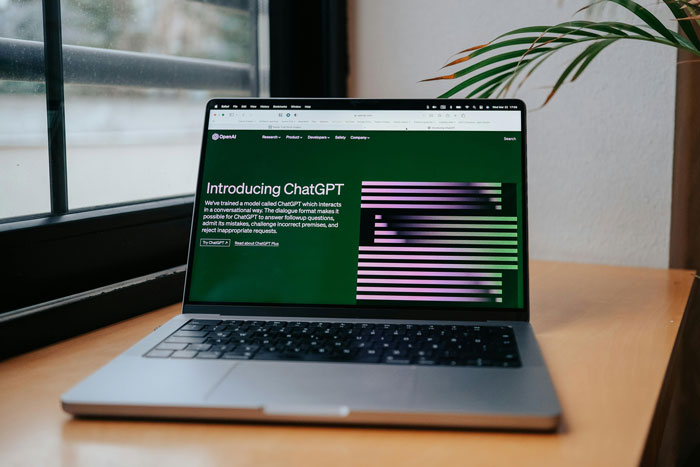
Image credits: Hatice Baran (not the actual photo)
A company bought an expensive AI model to help employees with any questions they might have
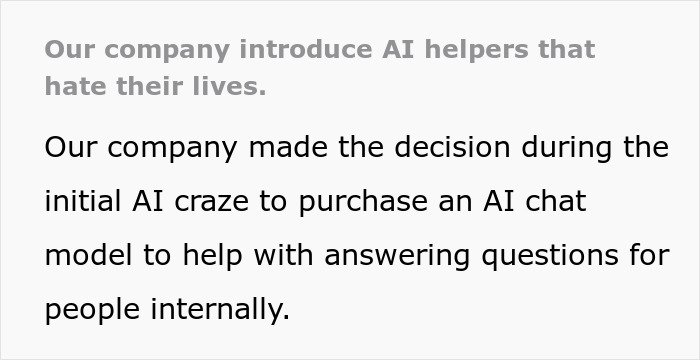
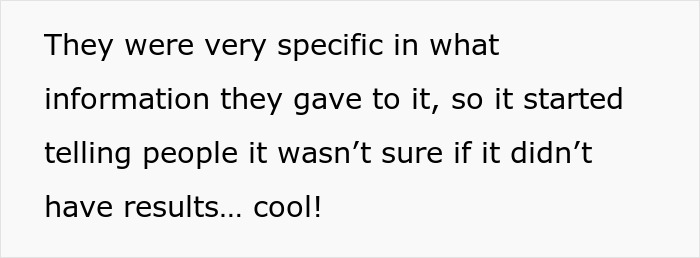


Image credits: Ankit Rainloure (not the actual photo)
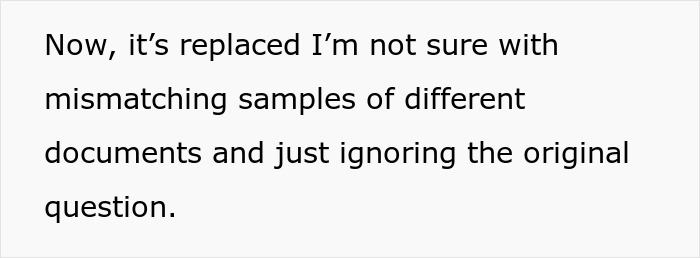



Image credits: Matheus Bertelli (not the actual photo)


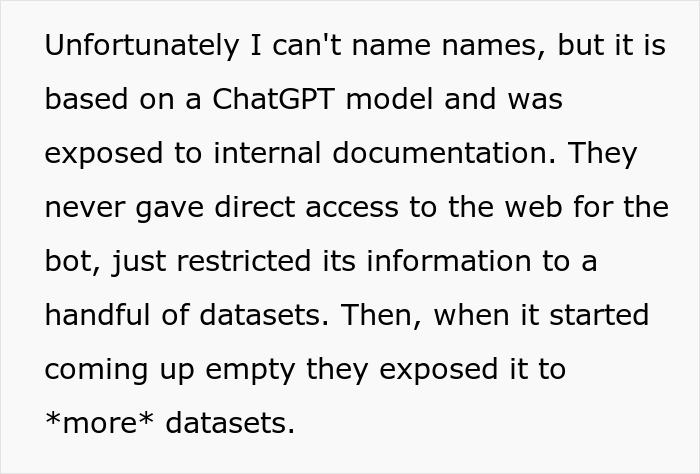
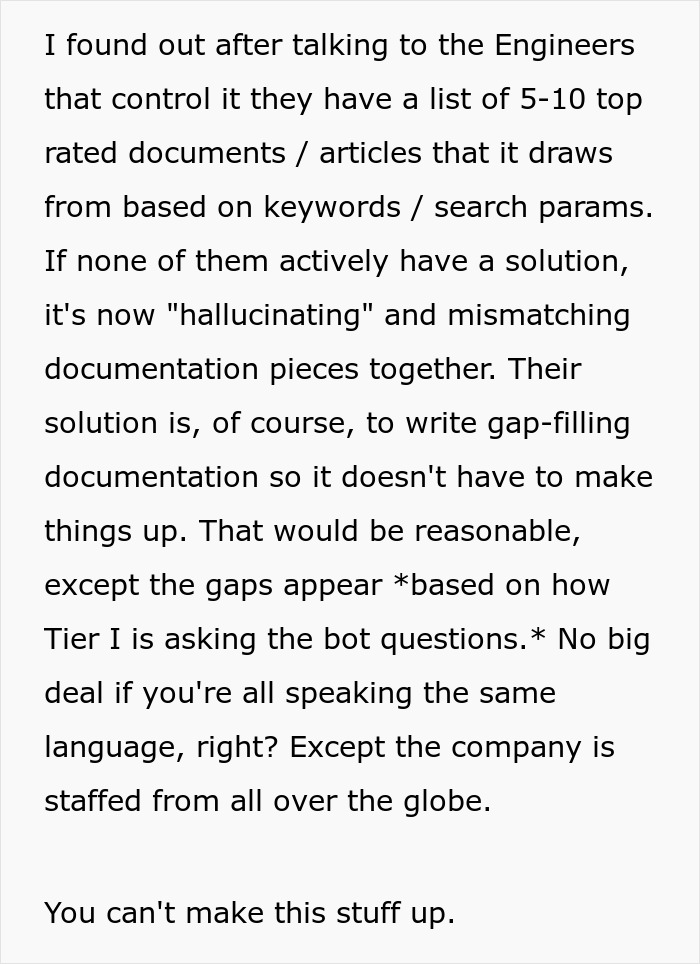
Image credits: Alterokahn
But the AI model ended up malfunctioning so badly that instead of employees asking it questions, they asked questions about it, as the model started giving made-up information
To justify layoffs, the OP’s company purchased an expensive ChatGPT-based AI chat model with no name to answer internal questions the employees had.
A few well-known examples of AI models meant for answering questions are Google Assistant, Amazon Alexa, and Apple Siri. Of course, it should be noted that these examples aren’t extensive by any means, and with the recent AI craze, there are a lot of new models coming into work nearly every day.
Coming back to the story, the information given to the AI was very specific, so the model started telling people it wasn’t sure about the results. Shortly after it started, employees began to simply “Google It.” And that’s not even the end. According to the post’s author, now the model simply makes stuff up and ignores the original questions.
The OP talked with the engineers in charge of the model, and they explained that the model has a list of 5-10 top-rated documents it bases its answers on. If none of these documents have a straightforward answer, the AI model starts “hallucinating” and mismatching pieces together.
Part of it could be solved by providing gap-filling documentation, but the problem with this is that the troubles appear due to the way the questions are being asked. And since the company has employees all around the world, it’s possible some employees aren’t forming questions in English. So, the company is left stuck with a self-hating AI model.
Some of the netizens found this situation funny and even made jokes like, “This AI entered its teenage years,” or they expressed how they felt kind of jealous of it, as it can simply tell people to Google the information they need. A few were just simply interested in what made the model malfunction this way.
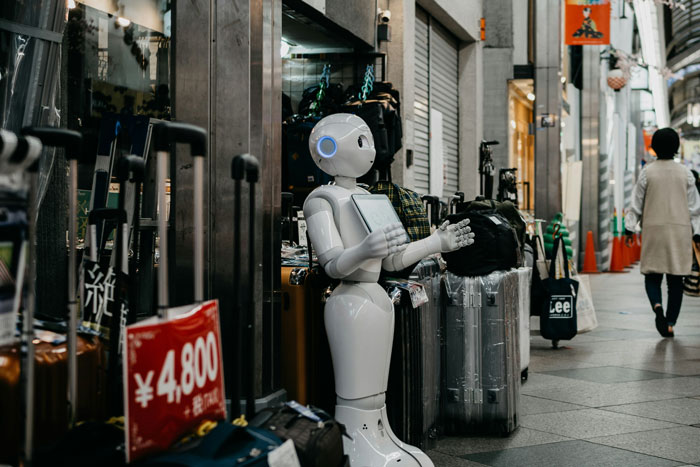
Image credits: Lukas (not the actual photo)
But AI models can be used for way more than just answering questions. In fact, AI is so ingrained in our lives that we don’t even realize it. For example, nearly all social media platforms use AI in some capacity. When you see recommendations of accounts you would like or simply when the platforms display your feed according to what you’re interested in.
Basically, it’s the same thing with Netflix — it uses AI to improve its content recommendations. With online stores, AI-based algorithms are used to predict, for example, what customers might want to buy. Again, the AI field is already so broad, and it’s growing every day, so it’s hard to keep track of every single thing in our lives that AI is in charge of.
Yet, experts voice that AI shouldn’t be trusted blindly — after all, it’s still a machine. It can be unpredictable, act immorally, or the algorithms it’s based on can be unclear.
In the future, it’s possible that artificial intelligence will evolve enough to overcome these flaws, but then other challenges will arise, such as the models potentially taking away jobs from people. These models even do this right now, or at least attempt to. As we can see in the Reddit story, the AI was bought to justify layoffs, but in the future, the possibility of this might increase.
AI is both useful and unhelpful in many areas, depending on what or by whom it’s being used. At least, right now, it isn’t capable of avoiding burnout, so we can probably feel safe in our jobs, at least for a little while. And what awaits in the future even AI itself can’t predict right now.
Some internet folks thought this whole situation was hilarious, while others were interested in why such a smart technology started acting so stupidly
